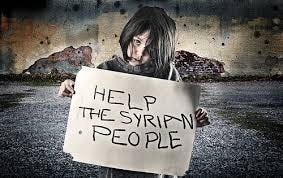Of Red Lines, Game Changers and U.S. Credibility

If the Syrian regime ever uses chemical weapons on its own people, the president said, then it will have crossed a “red line;” using chemical weapons is a “game-changer, he said.” The implication was clear: If Syria crossed that bright line, the United States would not tolerate it. We would take action. Military action, presumably.
It’s a safe bet the president wishes he had never uttered those words.
In a letter to Congress, the White House says, “Our intelligence community does assess, with varying degrees of confidence, that the Syrian regime has used chemical weapons on a small scale in Syria, specifically, the chemical agent sarin."
That is not the kind of information the White House wanted to make public. But knowing word would leak either from intelligence sources in this country or overseas, they had to get out ahead of the story. But this raises a crucial question: what now?
The U.S. can’t bomb the facility housing those weapons in Syria. That would cause the very calamity we’re trying to prevent. It can’t invade Syria – no one’s for that. The president can try to lead a coalition of friendly nations to … do what? We could arm the rebels we trust -- and pray the weapons don't get into the hands of the rebels we don't trust, like al-Qaeda.
Pundits on cable TV can mouth off about anything and it doesn’t really matter all that much, not in the real world anyway. But presidents don’t have such luxury. Words have meaning, and implications. Last August President Obama said there would be "enormous consequences" if Syria used chemical weapons. Last Friday he said something quite different, that any response would be a "long term proposition. This is not going to be something that is solved easily, overnight."
If the United States does nothing in Syria, why should Iran take Mr. Obama’s words seriously when he says he will not allow the mullahs over there to possess a nuclear bomb? Why should North Korea take us seriously? Why should any country, friend or foe, count on what we say?
One concern at the White House, a legitimate one, is that the intelligence on Syria’s supposed use of sarin gas may be wrong. One senior U.S. defense official told reporters , "We have seen very bad movies before" — a reference to the “slam dunk” intelligence that Saddam Hussein had weapons of mass destruction.
The president, understandably, doesn’t want to make a similar mistake in Syria. A White House official told reporters that, "Given our own history with intelligence assessments, including intelligence assessments related to weapons of mass destruction, it's very important that we are able to establish this with certainty and that we are able to present information in a way that is airtight.”
But what if the U.S. can’t prove its case with that high degree of certainty? Can the president say the red line wasn’t crossed? If he does, that would be the real game changer -- as far as the rest of the world is concerned. Mr. Obama’s promises would carry little weight. America would be one more casualty in Syria’s civil war.










